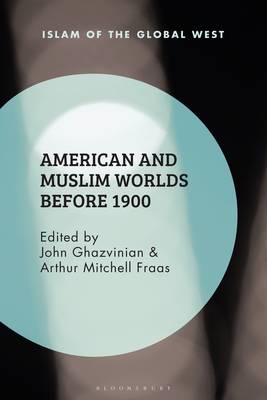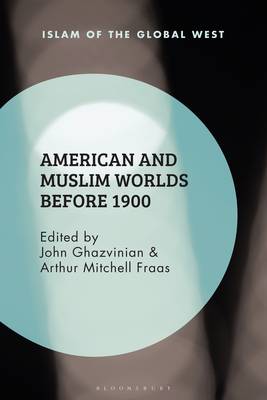
- Afhalen na 1 uur in een winkel met voorraad
- Gratis thuislevering in België vanaf € 30
- Ruim aanbod met 7 miljoen producten
- Afhalen na 1 uur in een winkel met voorraad
- Gratis thuislevering in België vanaf € 30
- Ruim aanbod met 7 miljoen producten
Zoeken
American and Muslim Worlds Before 1900
€ 254,45
+ 508 punten
Omschrijving
American and Muslim Worlds before 1900 challenges the prevailing assumption that when we talk about "American and Muslim worlds", we are talking about two conflicting entities that came into contact with each other in the 20th century. Instead, this book shows there is a long and deep seam of history between the two which provides an important context for contemporary events -- and is also important in its own right.
Some of the earliest American Muslims were the African slaves working in the plantations of the Carolinas and Latin America. Thomas Jefferson, a slaveholder himself, was frequently called an "infidel" and suspected of hidden Muslim sympathies by his opponents. Whether it was the sale of American commodities in Central Asia, Ottoman consuls in Washington, orientalist themes in American fiction, the uprisings of enslaved Muslims in Brazil, or the travels of American missionaries in the Middle East, there was no shortage of opportunities for Muslims and inhabitants of the Americas to meet, interact and shape one another from an early period.Specificaties
Betrokkenen
- Uitgeverij:
Inhoud
- Aantal bladzijden:
- 240
- Taal:
- Engels
- Reeks:
Eigenschappen
- Productcode (EAN):
- 9781350109513
- Verschijningsdatum:
- 6/02/2020
- Uitvoering:
- Hardcover
- Formaat:
- Genaaid
- Afmetingen:
- 163 mm x 236 mm
- Gewicht:
- 657 g

Alleen bij Standaard Boekhandel
+ 508 punten op je klantenkaart van Standaard Boekhandel
Beoordelingen
We publiceren alleen reviews die voldoen aan de voorwaarden voor reviews. Bekijk onze voorwaarden voor reviews.






